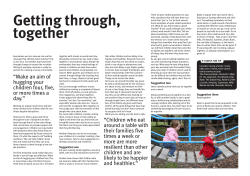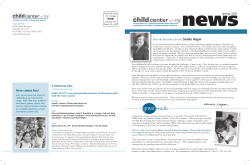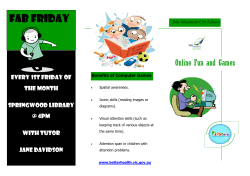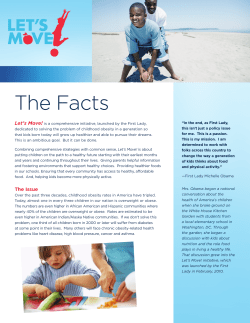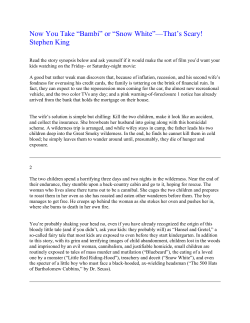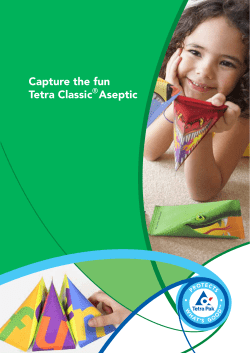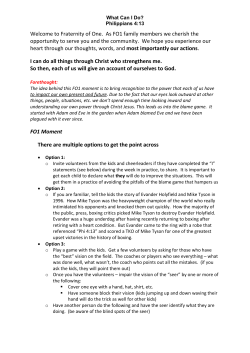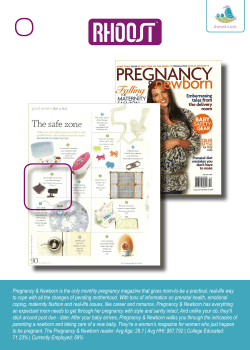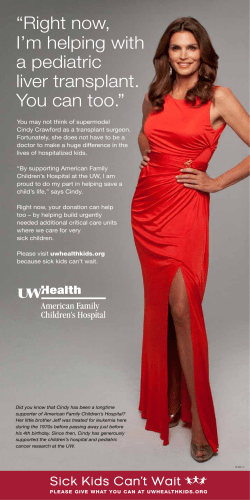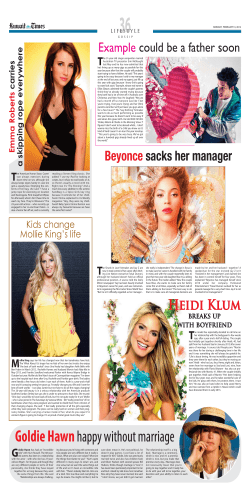
The World of well-being
well-being The World of H e ’ s n o w i z a r d, b u t D r . Oz s h a r e s h i s w i s d o m o n l i v i n g h e a lt h y i n t h e 2 1 s t c e n t u ry. b y am b e r n as r u l l a Here’s a fun fact: North America’s most famous physician, Dr. Mehmet Oz, falls asleep on the job every day. “Naps are fantastic!” says the father of four from his New Jersey home. As host of his own program, “The Dr. Oz Show” and publisher of his newly minted health magazine, The Good Life, he can pretty much do what he wants. On the eve of becoming a grandfather, Dr. Oz shares his observations on family, health and happiness. What are some common health concerns parents tell you about? The advancement of the digital world has hindered boys, I think, more than girls. It gets harder to get kids to connect and focus on the values parents want to pass along. This is not a rail against the digital world, which is valuable; it creates stimulation in ways that historically would have been left to parents. From a physical perspective girls are seeing puberty earlier. We’re not sure why. It could be because some girls are gaining weight earlier. It could be from environmental stimuli, toxins and endocrine-stimulating agents in water and food. None of that’s been proven. It’s an observation. 30 .com M AY 2 0 1 4 Film star and racing enthusiast Steve McQueen invented (and patended) the bucket seat in 1969. You mentioned girls getting heavier. In Canada, 30 percent of children are classified as overweight or obese. In bygone years it was difficult for kids to spend a lot of time indoors. The usual adage from parents was, ‘Go outside and play until it gets dark.’ I don’t know any parent who does that now. In the academic environment we’ve crafted for our kids, we expect them to stay inside, study more and specialize. They rarely go outside and play sports. Schools no longer have as much emphasis on athleticism. Plus, many of the foods we’re eating are addictive; they are high in salt and sugar. Potato chips in particular hit the brain like crack cocaine. We have easier access to simple carbohydrates (fructose and glucose) and they’ve become staple foods. With the breakdown of family meals, kids imbibe huge amounts of carbs without nutrition. The child and adolescent brain is not looking for calories, it’s looking for nutrients. What are the top things parents can do to help their family be as healthy as possible? On the emotional side, if you look at adults who are happy, the most important variable appears to be that they think they were loved as kids. There are probably scenarios where the parents really didn’t love the kids but the kids thought they were, and there are scenarios where the kids absolutely and truly were loved by the parents, but they didn’t sense it. That’s tangled. So how do parents raise emotionally vibrant kids? Kids crave attention and making them appreciate that attention is a manifestation of love. This includes encouraging gestures – it’s not just, ‘Hey you’re the best’. It’s positive feedback. ‘Keep going at it’ or “You’re doing fine” is hugely valuable, especially when kids are having emotional meltdowns. The second tip is making sure you use all your senses. Even with affection. Kids hear, they see, they touch, so stimulate them. We try not to say ‘no’, which is another child-raising tip. There’s usually a deeper curiosity a child has that you can expand upon. Try: ‘That electricity plug has incredible power. See those black power cables out there? If you touch that, it will hurt you badly so we don’t want to do that’. As opposed to ‘No! Don’t do that’, which is an easier and fear-evoked response but it doesn’t answer their curiosity. They are not putting their finger in to disobey you – which saying ‘no’ implies – but because they wanted to know what’s going on inside that plug. What mistakes do you see parents making often? We all make a lot! A common error is believing you determine everything about how a kid turns out. There’s clearly a genetic element to how kids Each year about 450 men die of breast cancer in America. "The Dr. Oz Show" conveys health info with the help of fun visual effects, audience members and guest celebs, including Jessica Alba (opposite page) and the cast of Tyler Perry's The Best Man: from left to right, Taye Diggs, Morris Chestnut, Harold Perrineau and Terrence Howard. The result is a unique brand of easy-to-understand health advice. The Dr. Oz Show airs weekdays at 5 p.m. ET on CTV. deal with life. Some have more anxiety. Some are faster. Some are quicker at math while others are better at English. I see parents sometimes getting in the way when they have aspirations for their child that don’t quite match that child’s skill set. Second, when we helicopter parent, when we get in the way of kids making mistakes, when we don’t let them fail and discount any failings, we actually do them a great disservice. Ultimately what gives a child the confidence to thrive in the world is the knowledge that they can fix whatever mistakes they make. There’s also a rational understanding that in order for them to be truly self-actualized, they have to be able to fall down. And realize it’s OK. What is your parenting philosophy? My wife Lisa (of 29 years) and I always try to remember that kids won’t treat themselves the way you treat them. They’ll treat themselves the way you treat yourself. It’s important to make sure they see both of us in an uplifting, self-fulfilling fashion. I always felt my main goal as a parent was to make the children feel safe so they could learn. We know that kids who don’t feel safe don’t learn as well; it actually shuts down their hippocampus, which is the learning centre of the brain, so they lack the ability to deposit short-term memory. Kids in abused households and traumatic environments have a very difficult time laying down memories. Hearing that makes me want to give my child everything. I say this to my kids all the time: ‘When you give your kid something that you didn’t have when you were growing up, you take from them something you did have.’ For instance, my parents would fly us to Turkey to see their family and we had to stop in every city in Europe to cobble together the trip because we couldn’t afford the non-stop plane ticket. But now, I take my kids first class. They don’t appreciate how far it is and how unique it is. It’s just 10 hours in an airplane. I don’t want them to have to take buses from Bulgaria to Istanbul like I did, but I learned a lot on those trips. Are there things you’d recommend for your grandchildren that you didn’t do for your children? I think of all the parties I missed and the events I leapfrogged because I was juggling too many things. I was a firm believer in multitasking because it seemed more efficient, but I’m now convinced that it’s a myth and that none of us can multitask. There’s a lot of data now confirming that when you “multitask”, you serially task. So skip the hospital party and be with the kid or skip the birthday party and stay at the hospital. How do you juggle a TV show, four children, and your new magazine – Dr. Oz The Good Life? In many ways I’m a hermit. I don’t do a lot of crazy things. When I do go out, I don’t do five events. I get to work at 7 a.m. We tape our morning show. I have lunch. I’m like an old man – I take a nap every day. I do an afternoon show, get briefed for the next day and then I go home. That’s my day. British-Pakistani-Canadian writer Amber Nasrulla lives in Orange County, California with her seven-year-old son and husband. They watch Dr. Oz episodes. A lot. .com 31
© Copyright 2026
